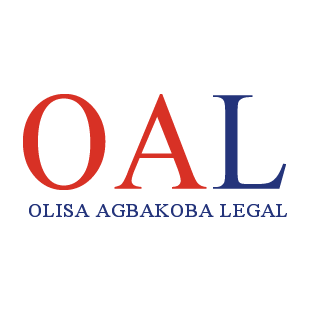Generally, Intellectual Property (“IP”) covers products of intellectual creations. However, it can also mean a generic term that describes creations of the intellect concerning which the law ascribes the exclusive right of appropriation to the designated owners. Intellectual Property law is a body of laws that governs all the relevant aspects (i.e. ownership, registration, protection, licensing, assignment, lifespan, etc.) of IP rights.
In Nigeria, several laws have a bearing on the protection and administration of the different rights that make up intellectual property. However, the three main statutes governing the intellectual property law in Nigeria are the Copyrights Act, the Patents and Designs Act, and the Trademarks Act.
These laws govern the protection and administration of the predominant Intellectual property protected in Nigeria as follows:
-
Copyright:
Copyright in an intellectual work is that exclusive right of the author of the original work to control or enable the doing of certain expressly stated acts in respect of the whole or substantial part of the work either in its original form or in any other recognisably derived from the original form but subject to certain statutory exceptions.
Therefore, the copyright laws refer to the bundle of law that seeks to protect the rights of authors of such works that have been expressed in specific forms for the transformation or reproduction by persons who are neither authorised nor licensed by the copyright owner.
Copyright is governed by the Copyright Act Cap 68, Laws of the Federation of Nigeria, 2004. Section 1(1) (a-f) of the Copyright Act provides for works protected by copyright which include;
- Literary works
- Musical works
- Artistic works
- Cinematograph films
- Sound recordings
- Broadcasts
Overall, there are two criteria by which a work is adjudged to be eligible for copyright protection in Nigeria: originality and fixation. Thus, all copyright works must be original and expressed in a definite medium to be protected under the law. This is because copyright does not protect ideas but rather how ideas are expressed. By the provisions of section 1(2) of the Copyright Act, a literary, musical or artistic work must satisfy the twin requirements of “originality and fixation.”
Finally, it is crucial to note that works that satisfy the above conditions enjoy automatic copyright protection without registration or compliance with any formal rules. Nonetheless, the Nigerian Copyright Commission (NCC) provides owners of copyrights the option to deposit a copy of their works with the NCC and receive a certificate that serves as notification of the existence of the work to the general public.
-
Trademarks:
A Trademark is any mark, sign, or combination thereof that the owners’ design to identify their product and differentiate it from other manufacturers’ products, especially competitors. There is a peculiar measure of identity associated with your goods. Section 67 of the Trademarks Act Cap T3, Laws of the Federation of Nigeria 2004, defines a trademark as:
A word, letter, label, numeral, colour, signature, device or any combinations of words, letters, labels, signatures that identify and distinguish the source of the goods or services of one manufacturer from those of others in the course of trade.
Trademark distinctiveness is an essential concept in the law governing trademarks and service marks. A trademark may be eligible for registration if it performs the critical trademark function indicated above and is distinctive. An essential role of any brand is to point the consumer to the origin of the marked goods and services; to do this, a trademark must distinguish the said goods or be capable of doing so.
Distinctiveness is critical for a trademark’s registration. Distinctiveness connotes uniqueness, speciality, peculiarity and a distinguishable feature of a particular mark from another. Distinctiveness impacts everything from the registrability of a mark to its scope of protection, enforceability and continuing validity once registered. Trademark distinctiveness is essential when assessing how strong the trademark protection is against other competitors who may try to use trademarks as an instrument of deception, misdirection or deceit on the buyers or consumers of goods.
Notwithstanding, one must note that distinctiveness is not an automatic pass for registration as the Registrar of Trademark has the discretion to refuse, albeit in line with the Trademarks Act. The Act provides that a mark can be rejected for being deceptive, scandalous, contrary to public policy.
-
Patents:
Patents law is channelled towards protecting inventions that extend to things like machines, devices, chemical compositions, and manufacturing processes. Essentially, the law protects the owner against the independent development of the patented subject matter. It is a grant from a government that confers upon an inventor the right to exclude others from making, using, selling, importing or offering an invention for sale for a fixed period. This invention may be a new product or process. The patent protects the inventor from others who may attempt to make, use, distribute or sell the invention without the patent owner’s consent.
Patentable inventions are inventions in respect of which the law will grant a patent. The Patent & Designs Act Cap P2, Laws of the Federation of Nigeria 1988, outlines conditions for an invention to be deemed patentable. According to section 1(1) of the Patent & Designs Act, an invention is considered patentable if it meets the following conditions;
- It must be new
- It must be the result of an inventive step; and
- It must be capable of industrial application.
In Nigeria, Patents cannot be validly obtained in respect of:
(a) plant or animal varieties, or essentially biological processes for the production of plants or animals (other than microbiological processes and their products); or
(b) inventions the publication or exploitation of which would be contrary to public order or morality (it being understood for this paragraph that the exploitation of an invention is not contrary to public order or morality merely because its exploitation is prohibited by law).
Furthermore, the provisions of section 1(3) of the Patent & Designs Act states that any publication made available to the public by oral disclosure, a document or a prior use will destroy the requirement of novelty and ultimately make an invention non-patentable. Provided that, however, an invention is not deemed to have been made available to the public merely because, within six months preceding the filing of a patent application in respect of the invention, the inventor or his successor in title has exhibited it in an official or officially recognised international exhibition.
Again, the rights conferred on a patentee are not automatic. They require the statutory formality of registration as provided in section 2 of the Act to bring them into effect. This is done through the office of the Registrar of Patents in the Federal Ministry of Industry, Trade and Investment. The Registrar has a duty under the Patents & Designs Act to examine all patent applications to ensure that they conform with the provisions of the Act.
However, it is essential to note that the examination here does not amount to an analysis in substance but rather form. Mainly, in making an application, it is crucial for an applicant to adequately state the specifications and claims of his invention, which he desires to protect in the patent application. The reason for this is that the specification and claims are the heart of patent law. Claims define the boundaries of the patent’s property right that the patent confers. They clearly define a patent owner’s property right.
Overall, once an application satisfies all the Patents & Designs Act requirements, the Registrar will grant the application without any further examination of the fact of patentability or non-patentability of the subject matter of the application. The patent grant gives an inventor monopoly rights for a limited period to make, use or apply the process or product of his inventive ingenuity. A patentee is entitled to the sole ownership and profits arising from his invention during the patent’s lifetime, usually twenty years (20 years) in Nigeria.
-
Industrial Designs:
Industrial designs are those elements incorporated into mass-produced items that tend to enhance attractiveness by their appearance. Industrial design protection covers designs that are original and novel. It is called industrial design because for it to qualify for protection, the design must be capable of application for mass or industrial reproduction.
According to section 12 of the Patents & Designs Act, industrial designs are created as models or patterns to be multiplied by an industrial process and not intended to achieve a technical result, i.e. relate to or improve on the functional feature of a product without which the product cannot perform its functions.
Hence, if a design relates to a functional element or enhances the functionality of a product, it will not be registrable as an industrial design and is more suitable for patent protection. The net effect of this section is that a design need not be functional nor add value to the ability or substance of the article. It suffices if all the design does is to attract attention or that it is eye-catching to influence consumers.
There are two fundamental conditions an industrial design must fulfil before it can be registrable;
- Newness
- Not contrary to public order or morality
The right to protection of a registrable industrial design is based on the priority of registration, i.e. a party who registers first receives priority. Section 14 of the Patent & Designs Act vests the right to register the design in the statutory creator. A registered design protects the shape of the product, i.e. lines, colours or any three-dimensional form.
The idea is to prevent others from reproducing the product’s exterior design for industrial use. The owner of a registered design can prevent others from copying, importing, illicitly profiting, selling or utilizing for commercial purposes by reproducing the design. A registered design is protected for five years from the date of the application for the registration.
In Conclusion
Businesses require competent legal advisors to assist them in navigating the ever-changing world of intellectual property (IP) law in order to remain relevant in today’s global marketplace. IP is a valuable asset that must be safeguarded if your company is to thrive because you spent a lot of time and effort developing ideas, technologies, and designs that set you apart from other competitors or businesses. However, in order to preserve your intellectual property asset, it is essential that you consult with an intellectual property lawyer.
IP lawyers can assist you in ensuring that no one else profited or misappropriated their works without obtaining legal authorization or paying fair royalties. Talking with the best intellectual property lawyers in Nigeria can undoubtedly put your mind at ease regarding the security of your intellectual property.
Having an IP lawyer on your team is a smart strategic decision for your company. This will allow you to collaborate with your lawyer to ensure that your intellectual property is properly safeguarded and utilized to its greatest potential.
Olisa Agbakoba Legal is a full-service law firm with a team of intellectual property lawyers who work exclusively in the intellectual property sector. We provide strategic advise to clients on all aspects of intellectual property. Because we are aware of worldwide market trends, we assist both small enterprises and multinational corporations in understanding and using their intellectual property rights. Additionally, with a global network of partners in a variety of technical specialties, we are able to support our clients regardless of where they conduct business.
Our team collaborates directly with clients to safeguard the security of their ideas and technology, allowing them to focus on their core competencies—business growth and development. We prosecute patent applications and trademark registrations in Nigeria on a regular basis, in addition to litigating IP disputes across a variety of platforms.
Written By:
Nosa John Garrick
Nosa is an Associate at Olisa Agbakoba Legal. He is an intelligent and dynamic attorney who continuously applies his critical and creative thinking to deliver excellent client-oriented solutions.
View Nosa’s Profile >>
Author






